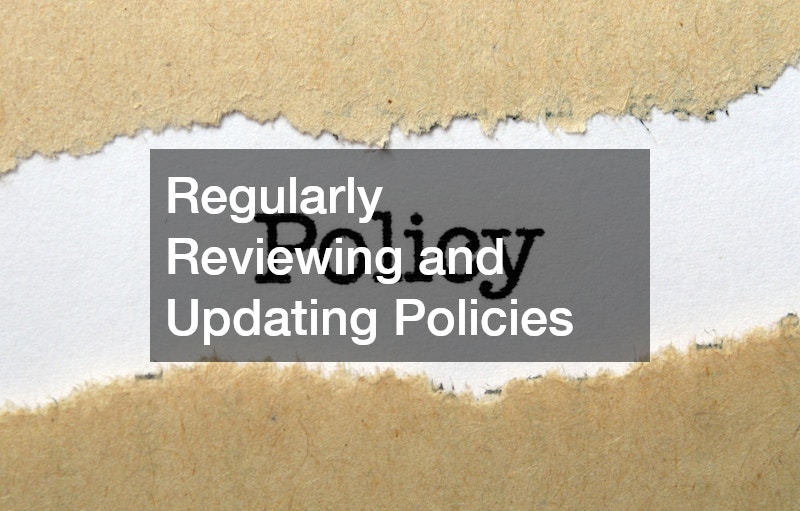Small business owners face a variety of challenges, including the need to protect their assets, employees, and overall business operations. Protecting your small business against potential risks is essential in today’s ever-changing world. This is where business insurance plays a vital role. Insurance can help mitigate risks, safeguard against unforeseen events, and ensure the long-term stability of your business. Whether dealing with legal liabilities, cyber threats, or natural disasters, having the right insurance can mean the difference between a secure business and financial distress.
Navigating the complex world of insurance can be daunting for many small business owners. It’s crucial to understand the types of coverage available, identify your specific risks, and choose policies that suit your business. This article delves into various aspects of business insurance and how it can protect your small business. With practical advice and valuable insights, you’ll be better equipped to safeguard your business against potential threats.
Understanding the Basics of Business Insurance
Knowing the fundamentals of small business insurance is crucial to protecting your business against risks. Business insurance covers a range of incidents, including employee-related issues, property damage, and legal liabilities. Some of the most common types of business insurance include general liability, property insurance, workers’ compensation, and professional indemnity insurance. Each type of policy serves a distinct purpose, so understanding these basics helps you determine which coverage is essential for your small business.
For example, in industries like fertility services, the handling of sensitive materials and data introduces unique liability concerns. Comprehensive insurance tailored to such risks ensures your business is protected while maintaining client trust. By understanding the essentials of business insurance, you can better prepare your business to weather various challenges.
Identifying Key Risks and Coverage Needs
To protect your small business adequately, it’s essential to identify the key risks it faces and determine your coverage requirements. Risks vary widely depending on your industry, location, and operations. Conducting a thorough risk assessment can help pinpoint potential threats, such as employee injuries, property damage, or legal liabilities. Once these risks are identified, you can select the appropriate insurance policies to mitigate them. Tailoring your insurance coverage to address your specific needs ensures optimal protection for your business.
For example, air conditioning repair businesses may face risks such as equipment damage, service-related liabilities, or on-site employee injuries. By identifying these risks, they can secure suitable insurance, including general liability, property coverage, and workers’ compensation, to shield their operations from financial and operational disruptions.
Choosing the Right Liability Insurance
Liability insurance is essential for protecting your small business from potential lawsuits. This type of insurance covers costs associated with legal defence, settlements, and judgments if your business is held responsible for causing harm to others. Common forms of liability insurance include general liability, product liability, and professional indemnity insurance. By understanding these options and selecting the right coverage, you can safeguard your business from financial and legal challenges.
For instance, legal professionals, such as criminal defence lawyers, face unique risks, including claims of negligence or malpractice. Professional indemnity insurance (often referred to as errors and omissions insurance) is specifically designed to protect against these challenges. Choosing the right liability coverage ensures peace of mind and business continuity.
Protecting Your Assets and Property

Business insurance is fundamental in safeguarding your assets and property. Property insurance helps cover the costs of repairing or replacing physical assets such as buildings, equipment, inventory, and furniture. This coverage is critical for maintaining your business’s infrastructure and continuity in the event of unexpected incidents like fires, theft, or natural disasters. Ensuring your assets are adequately protected is a cornerstone of small business security.
For instance, local roofing contractors rely on specialised equipment, materials, and vehicles to deliver their services. Property insurance covers these assets against risks such as theft, vandalism, or damage during transport. Coverage for premises, such as offices or storage facilities, further ensures resilience after unexpected events.
Securing Business Interruption Coverage
This type of insurance helps maintain financial stability during unexpected disruptions. This type of coverage compensates for lost income and operating expenses when your business is temporarily unable to function due to events such as natural disasters or fires. With business interruption insurance, your business can continue meeting financial obligations like rent and payroll, even if operations are temporarily halted.
For example, heavy machinery services often depend on operational infrastructure and equipment. Downtime caused by damaged equipment or unusable premises can lead to significant financial losses. Business interruption insurance helps cover lost revenue and ongoing expenses, ensuring the business can recover without undue financial strain.
Addressing Cybersecurity Threats
In today’s digital age, protecting your business from cyber threats is more important than ever. Cyber insurance covers financial losses resulting from data breaches, cyberattacks, and other online threats. This type of coverage often includes legal fees, notification costs, and public relations efforts to manage the impact of cyber incidents on your business. With the increasing prevalence and sophistication of cyber threats, small businesses can benefit greatly from cyber insurance.
For example, businesses that install electric vehicle charging stations often handle sensitive customer data and manage complex network connections. Cyber insurance protects these businesses from the potentially devastating costs of a cyberattack or data breach, safeguarding both operations and customer trust.
Providing Health Insurance for Employees
Offering health insurance to employees is not only a valuable benefit but also a strategic investment in your business’s stability. Health insurance ensures employees have access to necessary medical care, promoting a healthier, more productive workforce. Providing health benefits can also improve employee satisfaction and retention, reducing turnover costs.
For example, chiropractic practices often employ both healthcare professionals and administrative staff. Comprehensive health insurance benefits not only support employee wellbeing but also contribute to the delivery of high-quality care for patients. By investing in robust health coverage, chiropractors can attract and retain top talent while fostering a positive workplace environment.
Preparing for Natural Disasters
Businesses located in areas prone to natural disasters, such as bushfires, floods, or cyclones, must take steps to prepare for these risks. Natural disaster insurance covers the costs of repairing damaged property, replacing inventory, and recovering from interruptions caused by such events. This type of insurance is essential for helping your business recover quickly and continue operations after a disaster.
For instance, tree service companies operating in regions prone to severe weather face unique challenges. Storms can damage equipment and vehicles while simultaneously increasing demand for services. Natural disaster insurance helps these businesses recover quickly and continue meeting customer needs, ensuring long-term resilience.
Regularly Reviewing and Updating Policies

Regularly reviewing and updating your insurance policies is essential to ensure your coverage remains adequate and relevant. As your business evolves, your risks and needs may change. Conducting periodic evaluations of your policies helps identify gaps in coverage, ensuring your business is protected against emerging threats.
For example, local electricians often face evolving risks as they take on more complex projects or expand their operations. Regularly updating their insurance ensures they remain adequately covered, protecting their assets and operations from unforeseen challenges.
Choosing a Reliable Insurance Provider
Selecting a reliable insurance provider is critical for securing the right protection for your small business. Look for a provider that offers comprehensive coverage, competitive rates, and excellent customer service. Transparency, responsiveness, and a deep understanding of your business’s unique needs are also key qualities to consider.
For example, industrial flooring businesses face specific risks related to chemical use, equipment, and workplace safety. Partnering with a reputable insurance provider ensures tailored coverage that addresses these challenges, enabling the business to operate efficiently and safely.
Conclusion
Choosing the right insurance for your small business is a vital step in managing risks and securing long-term success. Understanding the basics of business insurance, selecting appropriate liability coverage, protecting assets, and addressing cyber threats are all essential measures for maintaining stability and resilience. Additionally, regularly reviewing policies, offering health insurance to employees, and preparing for natural disasters further strengthen your business’s defences.
Whether you run a fertility service, provide local trade services, or operate a specialised business, investing in comprehensive insurance is crucial. By proactively identifying risks and securing the right coverage, you can safeguard your small business against potential threats and ensure its continued growth and success. Partnering with a reliable insurance provider will help you navigate Australia’s dynamic business landscape, giving you peace of mind and the confidence to thrive.

